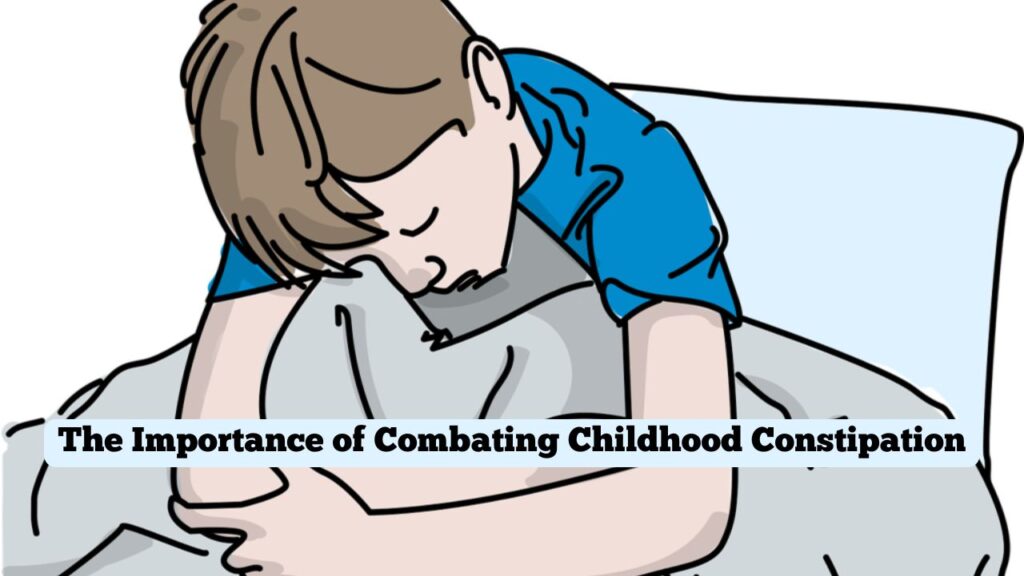Introduction
Childhood constipation is a common concern for many parents, affecting children’s overall quality of life and well-being. Fortunately, there are multiple strategies and natural remedies that can help alleviate and prevent constipation in children. This article at https://me-encantas.com/2020/02/12/aprende-a-combatir-el-estrenimiento-en-ninos offers a comprehensive guide to understanding and addressing this condition effectively.
The Importance of Combating Childhood Constipation
Constipation not only causes discomfort and pain but can also impact children’s emotional state and general health. By addressing this condition early and appropriately, parents can prevent complications and significantly improve the quality of life for affected children.
Also Read : 300 Win Mag vs 308: Comparison of Two Iconic Rifle Cartridges
Understanding Constipation in Children
What is Pediatric Constipation?
Pediatric constipation is defined as difficulty passing stools or a reduction in the frequency of bowel movements, often accompanied by hard and painful stools. It is important to distinguish between normal variability in bowel habits and chronic constipation that requires attention.
Common Causes of Constipation in Children
Constipation in children can be caused by a variety of factors, including:
- Low-fiber diet: Lack of fruits, vegetables, and whole grains can contribute to constipation.
- Insufficient hydration: Not drinking enough water can make stools hard and difficult to pass.
- Lack of physical activity: A sedentary lifestyle can slow down the digestive system.
- Changes in routine: Travel, dietary changes, or stress can affect bowel habits.
- Stool withholding: Children may avoid going to the bathroom due to pain or fear, worsening the problem.
Symptoms and Warning Signs
Recognizing the symptoms of constipation is crucial for timely intervention. Common signs include:
- Infrequent bowel movements (less than three times a week).
- Hard, dry, or lumpy stools.
- Pain or difficulty during bowel movements.
- Abdominal pain and bloating.
- Loss of appetite or general discomfort.
Strategies to Combat Constipation
High-Fiber Diet
A balanced diet rich in fiber is essential for preventing and treating constipation. Some tips include:
- Incorporate fruits and vegetables: Apples, pears, plums, carrots, and broccoli are excellent choices.
- Add whole grains: Opt for whole grain bread, brown rice, and high-fiber cereals.
- Avoid processed foods: Reduce intake of low-fiber, high-fat foods.
Adequate Hydration
Water is essential for keeping stools soft and facilitating their passage through the intestines. Ensure your child drinks enough water throughout the day. Avoid sugary drinks and encourage the consumption of plain water.
Exercise and Physical Activity
Regular physical activity helps stimulate the digestive system. Encourage active play, sports, and daily walks to keep the digestive system moving.
Natural Remedies for Constipation
Foods and Natural Supplements
Some foods and supplements can help alleviate constipation naturally:
- Prunes and prune juice: Known for their natural laxative properties.
- Flaxseeds: Adding a tablespoon of ground flaxseeds to food can increase fiber intake.
- Probiotics: Supplements or foods like yogurt that contain probiotics can help regulate the digestive system.
Abdominal Massages
Gentle abdominal massages can stimulate bowel movements. Massaging the abdomen in a clockwise direction can be particularly effective.
Routines and Healthy Habits
Establishing regular eating and bathroom routines can help regulate bowel habits. Encourage your child to go to the bathroom at the same time each day, preferably after meals.
Preventing Constipation in Children
Establish Regular Meal Times
Having regular meal times can help stimulate the digestive system. Ensure your child eats at regular intervals and avoids skipping meals.
Teach Healthy Bathroom Habits
Teach your child not to ignore their body’s signals. Encourage a relaxed and unhurried attitude towards bathroom use to prevent stool withholding.
Reduce Stress and Anxiety
Stress and anxiety can negatively affect the digestive system. Creating a relaxed and supportive home environment can help reduce these factors.
When to Consult a Doctor
Warning Signs
While many cases of constipation can be managed at home, it is important to know when to seek medical help. Consult a doctor if your child experiences:
- Severe and persistent abdominal pain.
- Blood in stools.
- Unexplained weight loss.
- Fever.
- Extremely hard and painful stools.
Medical Diagnosis and Treatment
A doctor may recommend additional treatments, such as specific laxatives for children or more detailed dietary changes. In severe cases, further testing may be required to rule out underlying conditions.
Success Stories and Testimonials
Reading testimonials from other parents who have successfully combated constipation in their children can be encouraging and provide additional strategies.
Conclusion
Combating constipation in children requires a comprehensive approach that includes a balanced diet, adequate hydration, regular exercise, and healthy habits. By implementing these strategies and being aware of warning signs, parents can help their children maintain a healthy digestive system and prevent future episodes of constipation. Visit https://me-encantas.com/2020/02/12/aprende-a-combatir-el-estrenimiento-en-ninos for more information and helpful resources.
Also Read : https://quesonlosvaloreseticos.com/diferencia-entre-etica-y-valores: Difference Between Ethics and Values
FAQs
What foods are good for relieving constipation in children?
Foods high in fiber, such as fruits (apples, pears, plums), vegetables (carrots, broccoli), and whole grains (whole grain bread, brown rice), are excellent for relieving constipation.
How much water should children drink to prevent constipation?
The amount of water varies by age and weight, but generally, children should drink between 5 to 7 glasses of water a day. Consult with a pediatrician for specific recommendations.
Is it safe to use laxatives in children?
Laxatives should be used with caution and always under the supervision of a doctor. There are specific laxatives for children that are safe and effective when used correctly.
How can I get my child to eat more fiber?
Gradually incorporate high-fiber foods into their diet, such as fruits, vegetables, and whole grains. Make fiber-rich meals appealing and explain the importance of these foods for their health.
What exercises are good for children with constipation?
Activities like running, jumping, swimming, and cycling are excellent for stimulating the digestive system and helping to alleviate constipation.
When should I be concerned about my child’s constipation?
Consult a doctor if your child has severe abdominal pain, blood in stools, unexplained weight loss, fever, or if constipation persists despite dietary and lifestyle changes.
Conclusion
Combating constipation in children requires a comprehensive approach that includes a balanced diet, adequate hydration, regular exercise, and healthy habits. By implementing these strategies and being aware of warning signs, parents can help their children maintain a healthy digestive system and prevent future episodes of constipation. Visit https://me-encantas.com/2020/02/12/aprende-a-combatir-el-estrenimiento-en-ninos for more information and helpful resources.



